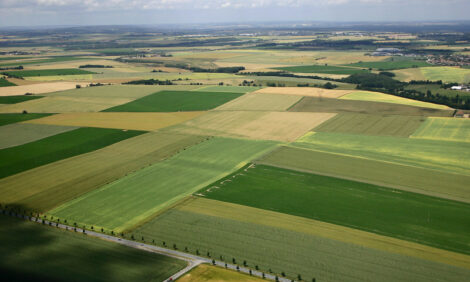



CAP Must Not Impede Essential Food Production
UK - The template for the Common Agricultural Policy (CAP) reform after 2013, which was approved by the European Commission last week, places heavy emphasis on the development of more environmental safeguards - and as a result it is possible that guaranteeing the EU’s future food security could be forced into second place.This, means that when the detail of new conditions for support payment is presented for public debate, care must be taken to ensure that the efficient production of increasing volumes of high quality food is not compromised by off-target efforts to install over-ambitious environmental management standards, says the National Beef Association.
“Ensuring that the EU’s tax payers can anticipate the unbroken delivery of adequate supplies of fresh food, at a time when the world faces an unprecedented population explosion, is just as important as the installation of environmental protection measures that will improve water and soil quality - and at the same time reduce the carbon emissions that accelerate climate change,” explained Association director, Kim Haywood.
“The NBA has always maintained that good farm and environmental management walk hand in hand but after examining the guidelines sketched out by the Commission last week we see a risk that flexible, and efficient, farm practice could be compromised by the installation of environmental demands that are over-intrusive, over-enthusiastic, or over-restrictive.”
“The College of EU Commissioners is understandably anxious that taxpayers who fund the CAP budget get value for money and the NBA’s response is that the biggest public service EU, and UK, agriculture can provide is daily provision of the fresh food, which is essential for every tax payer’s daily life.”
In view of this the Association aims to ensure that expected new cross-compliance work undertaken by farmers to maintain their holdings in good agricultural and environmental condition (GAEC) in return for basic support payments will not compromise efficient food production.
Also those additional farm payments, the so-called green premiums, are requiring farmers to adopt new management techniques that further enhance soil fertility, or assist the absorption of more carbon, enhance, and do not impede, farm output.
“The delivery of fundamentally important future food supplies, and the simultaneous maintenance of the UK’s rural landscape and environment, depends on farmers collectively being able to earn enough income from food sales to continue to be able to manage their land,” said Ms Haywood.
“Revenue earned from the sale of basic foodstuffs must be the backbone of their business because that means the need for direct income support, or revenue protection, provided by taxpayers through the CAP will substantially reduce.”
“It is therefore important for everyone, especially taxpayers, that over-zealous, or unnecessary, environmental stipulations are not allowed to make food production more difficult, and more expensive, when new environmental regulation driving the new CAP package is finally agreed.”
TheCattleSite News Desk


